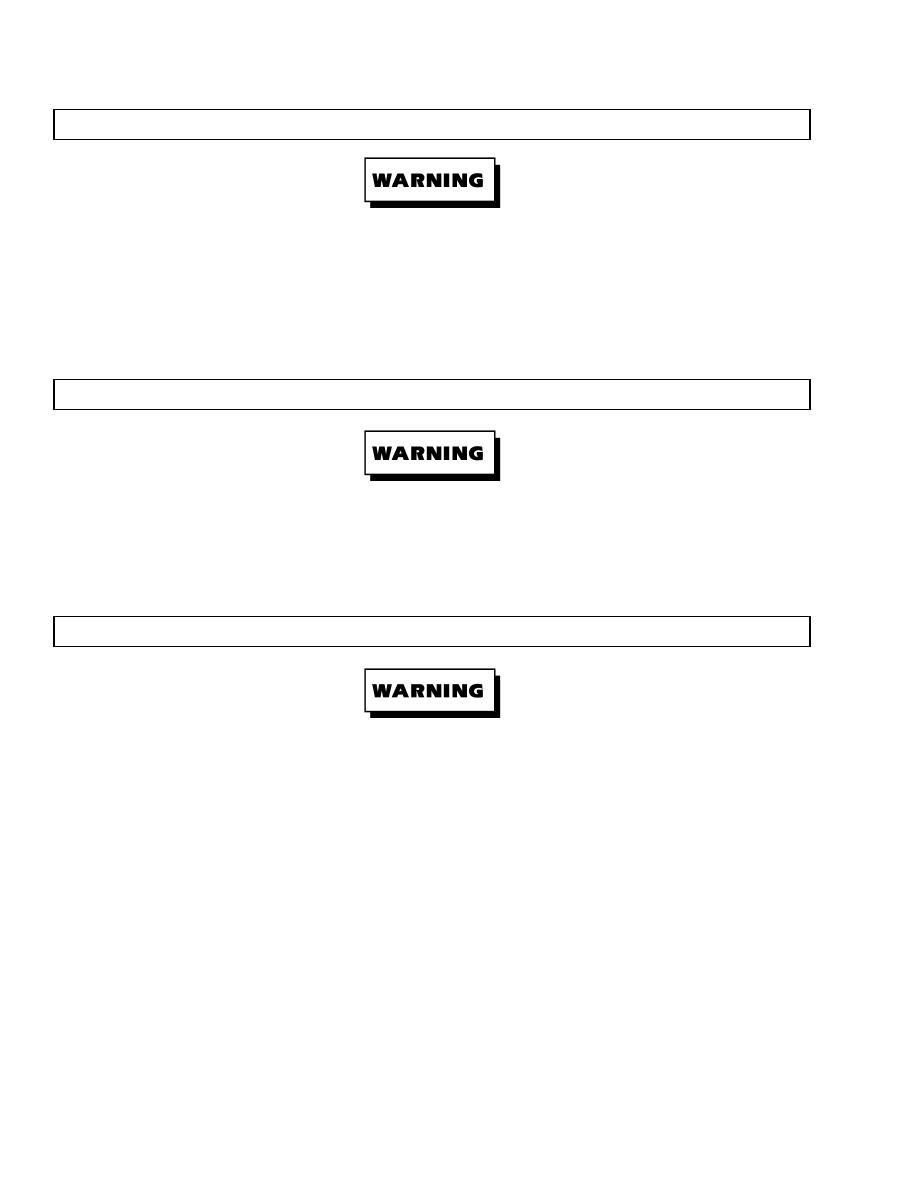
TM 5-2420-230-10
2-25. BATTERY EXPLOSIONS.
Lead-acid battery gases can explode. Do not smoke, have open flames, or make sparks around a
battery, especially if caps are off. Battery may give off gas which can explode. Failure to comply may
result in injury or death to personnel.
Never check battery charge by placing metal object across posts. Do not charge frozen batteries; they may explode. Ensure
battery compartment ventilation holes are not obstructed or blocked.
Entanglement in moving parts can cause serious injury or death.
To prevent accidents, care should be taken to ensure hands, feet, clothing, jewelry, and hair do not become entangled when
working around moving parts.
2-27. SCALD/BURN HAZARD.
If vehicle has been operating, use extreme care to avoid being burned when removing radiator cap
or coolant reservoir cap. Sudden release of pressure can cause a steam flash which could seriously
injure personnel. Use heavy rags to protect hands. Slowly loosen cap to the first stop and allow
pressure to be relieved before removing cap completely. After use, securely tighten cap. Failure to
comply may result in injury or death to personnel.
Use a clean, thick waste cloth, rags, or like material to remove the cap. Avoid using gloves. If hot
water soaks through gloves, personnel could be burned.
Hot parts can burn personnel. Let hot parts cool before starting work.
After operation, the engine coolant is hot and is under pressure. Hot fluid and steam may be contained in engine, radiator, and
heater lines. When removing radiator cap or coolant reservoir cap, ensure engine is cool and turn cap slowly to pressure-relief
stop point. Allow all pressure to release before continuing to remove cap.
Engine oil, gear oil, and hydraulic oil become hot during operation. The engine, hoses, lines, and exhaust system also become
hot. Wait for oil and components to cool before starting any maintenance or inspection work.

